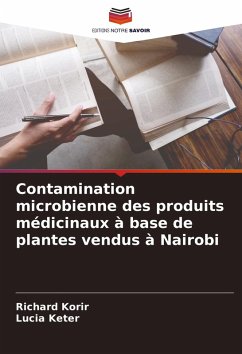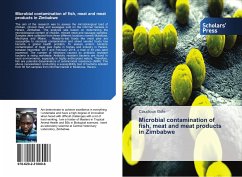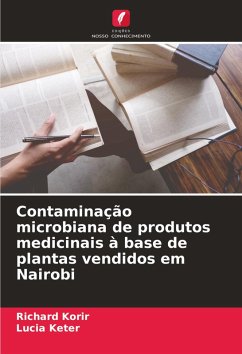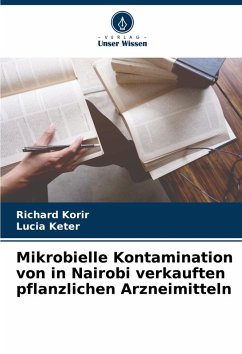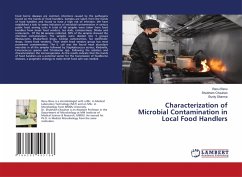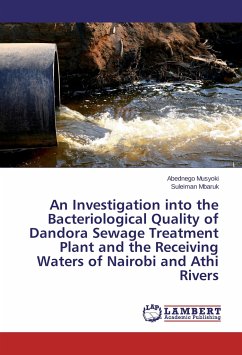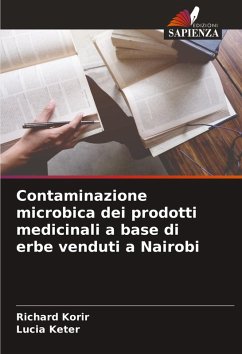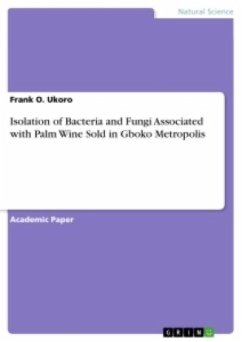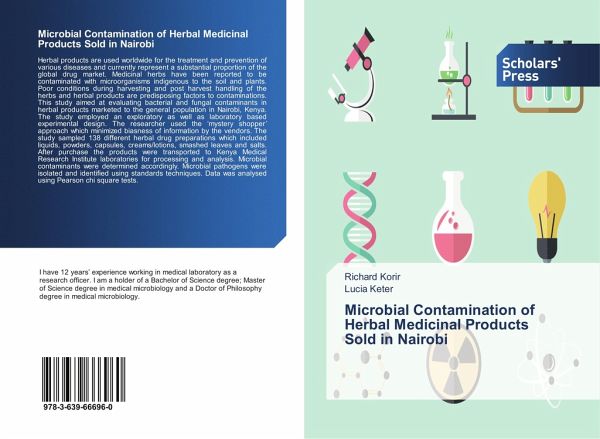
Microbial Contamination of Herbal Medicinal Products Sold in Nairobi
Versandkostenfrei!
Versandfertig in 6-10 Tagen
30,99 €
inkl. MwSt.

PAYBACK Punkte
15 °P sammeln!
Herbal products are used worldwide for the treatment and prevention of various diseases and currently represent a substantial proportion of the global drug market. Medicinal herbs have been reported to be contaminated with microorganisms indigenous to the soil and plants. Poor conditions during harvesting and post harvest handling of the herbs and herbal products are predisposing factors to contaminations. This study aimed at evaluating bacterial and fungal contaminants in herbal products marketed to the general population in Nairobi, Kenya. The study employed an exploratory as well as laborat...
Herbal products are used worldwide for the treatment and prevention of various diseases and currently represent a substantial proportion of the global drug market. Medicinal herbs have been reported to be contaminated with microorganisms indigenous to the soil and plants. Poor conditions during harvesting and post harvest handling of the herbs and herbal products are predisposing factors to contaminations. This study aimed at evaluating bacterial and fungal contaminants in herbal products marketed to the general population in Nairobi, Kenya. The study employed an exploratory as well as laboratory based experimental design. The researcher used the 'mystery shopper' approach which minimized biasness of information by the vendors. The study sampled 138 different herbal drug preparations which included liquids, powders, capsules, creams/lotions, smashed leaves and salts. After purchase the products were transported to Kenya Medical Research Institute laboratories for processing and analysis. Microbial contaminants were determined accordingly. Microbial pathogens were isolated and identified using standards techniques. Data was analysed using Pearson chi square tests.



